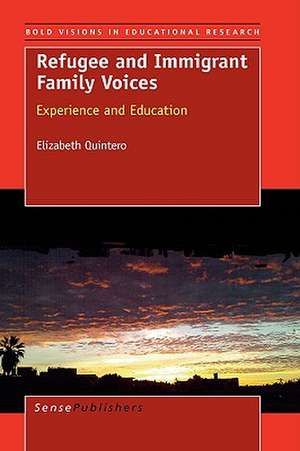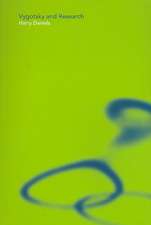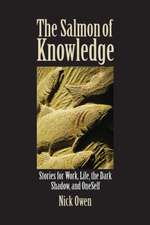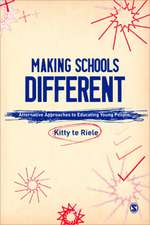Refugee and Immigrant Family Voices
Autor Elizabeth Quinteroen Limba Engleză Hardback – 31 mar 2009
| Toate formatele și edițiile | Preț | Express |
|---|---|---|
| Paperback (1) | 406.50 lei 3-5 săpt. | |
| Brill – 31 dec 2008 | 406.50 lei 3-5 săpt. | |
| Hardback (1) | 559.82 lei 38-44 zile | |
| Sense Publishers – 31 mar 2009 | 559.82 lei 38-44 zile |
Preț: 559.82 lei
Preț vechi: 691.13 lei
-19% Nou
Puncte Express: 840
Preț estimativ în valută:
107.13€ • 111.21$ • 89.33£
107.13€ • 111.21$ • 89.33£
Carte tipărită la comandă
Livrare economică 18-24 martie
Preluare comenzi: 021 569.72.76
Specificații
ISBN-13: 9789087902964
ISBN-10: 9087902964
Pagini: 140
Dimensiuni: 156 x 234 x 10 mm
Greutate: 0.38 kg
Editura: Sense Publishers
Locul publicării:Netherlands
ISBN-10: 9087902964
Pagini: 140
Dimensiuni: 156 x 234 x 10 mm
Greutate: 0.38 kg
Editura: Sense Publishers
Locul publicării:Netherlands
Descriere
Descriere de la o altă ediție sau format:
Wisdom and activism come to us sometimes in the smallest and most unexpected ways through soft, previously silenced, yet passionate voices. Critical theory, critical literacy, and related approaches to learning about the world and many forms of knowledge can be a potentially effective way to address complexities of our changing world society. Critical pedagogists and other postmodern scholars speak often of the importance of educators taking on the risk and responsibility of being intellectual participants. By attending to both the sense of opposition and the sense of engaged participation intellectuals can explore the possibilities for action.
This book reports on qualitative research following educators—including parents, community elders and teachers using critical literacy—in several countries and documents the ways the educators use various funds of knowledge (Moll et al., 2005) for self-advocacy. It modestly attempts to address the funds of knowledge of educators (families and community members) in a variety of contexts from a variety of cultures, continents, and situations of living.
Thus, this book is for all of us striving to make connections with migrating people through our work—educators, researchers, community activists, classroom teachers, family advocates, and readers interested in the changing dynamics of societies.
Wisdom and activism come to us sometimes in the smallest and most unexpected ways through soft, previously silenced, yet passionate voices. Critical theory, critical literacy, and related approaches to learning about the world and many forms of knowledge can be a potentially effective way to address complexities of our changing world society. Critical pedagogists and other postmodern scholars speak often of the importance of educators taking on the risk and responsibility of being intellectual participants. By attending to both the sense of opposition and the sense of engaged participation intellectuals can explore the possibilities for action.
This book reports on qualitative research following educators—including parents, community elders and teachers using critical literacy—in several countries and documents the ways the educators use various funds of knowledge (Moll et al., 2005) for self-advocacy. It modestly attempts to address the funds of knowledge of educators (families and community members) in a variety of contexts from a variety of cultures, continents, and situations of living.
Thus, this book is for all of us striving to make connections with migrating people through our work—educators, researchers, community activists, classroom teachers, family advocates, and readers interested in the changing dynamics of societies.












